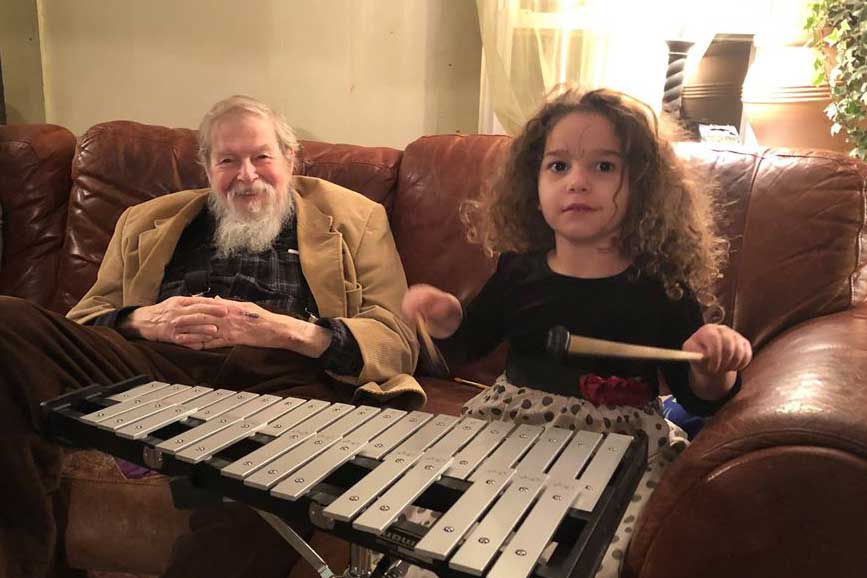
Even if you’re not particularly close, learn from them while you still can
When I was in ninth grade, a teacher assigned the class to interview someone older than us about their childhood, and write up the results. Being shy and lazy, I decided to interview my father, because I knew where to find him (upstairs).
I remember showing up with the absolute minimal effort: a scrap of paper and a pen, and no preparation whatsoever. He was very annoyed when I asked him to just sorta talk about his life, and he sent me off to do more preparation. Equally annoyed, I slunk off to write up a proper list of questions.
As so often happens with good assignments, I started off just trying to fulfill my minimum obligation, but discovered in the process that there was a lot I actually was curious about. I knew what his favorite holiday treats were, but what did he eat on normal days? What games did he play with his friends after school? Who were his friends, and why? Was there anyone he was scared of? What did his parents expect from him? Did he get along with them? Did that change?
I ended up with a decent article, and I’m fairly sure my father enjoyed the evening. We didn’t get along well at the time, so that’s a stand-out memory in itself: Him relaxing and telling stories, and me listening attentively.
As I listened, I slowly realised something that hadn’t hit home to my self-centered teenage self: This is a real person, not just a rule-maker and the bringer of unfair consequences. This is someone who had a favourite candy and a favourite tree and a favourite uncle as a little boy, someone who got in trouble with his teachers and his parents. This is someone who once wasn’t in charge of anyone.

It wasn’t the only time I interviewed him. A few years ago, I made an audio interview of his memories of the Six Day War in Israel (where he and my mother and two oldest sisters happened to be living at the time). A few years later, for a long article I never ended up publishing, I interviewed him specifically about his faith, and what it meant to him to be a Catholic with Jewish heritage.
I thought I had heard all his stories about that when I was growing up, but nope, I had not. It turns out it’s something he continued mulling over for many years, and he had thoughts and memories he was still processing, right up until the year he died.
Your relationship with your parents, if you have one at all, is not as static as you may think.
A therapist who specialised in counseling children through grief told me that, when children lose someone close to them, they can only grieve insofar as they are capable of doing according to their developmental age.
As they get older, they tend to re-grieve, in some form or other, as they hit different stages of maturity. This makes sense to me, because the a similar thing happens while they are still alive, even if you’re not in close contact with them.
I lost my father recently, and, in a different way, I have lost my mother (who is alive, but who has been lost to Alzheimer’s for several years). The relationship you have with your parents doesn’t become static even after you lose them.
It continues to shift and settle and even deepen and grow. It’s as if there’s you, there’s your parents, and then there’s this third thing: the relationship you have with them. It’s something that shifts and changes and expands and contracts over the years, and that continues to happen even after they’re gone.
The relationship you have with your parents doesn’t become static even after you lose them. It continues to shift and settle and even deepen and grow.
But of course there are some things you can only find out if you ask when they’re alive. I wish I had talked to my mother more. I knew the family legends and the stories she chose to share, but there are a lot of things I don’t know, things I didn’t even think to be curious about when she was still reachable.
So all of this is a long way around to saying: Why not interview your parents? If they are the kind of people it’s safe to have contact with (and not everybody’s parents are), then even if you’re not especially close, you may find it unexpectedly rewarding. There’s really only one way to find out.
Get a big piece of paper and start writing down questions. Ask about everyday life, food, houses, school, chores, clothing, money. Ask about family, about relationships, about free time, about prayer and work. What did they do on the weekend? What did they spend pocket change on? Ask how they got along with their parents, and how that changed over time. Ask about what they expected their lives to be like, and how that turned out.
Get a recording device ready, and be prepared to listen. Maybe make it a series of interviews. Let them talk about what they want to talk about. You may be surprised at how it differs from the usual family narrative. You may be surprised to know how much their history has to do with your present. Do it while you still know where to find them.
Related articles:
Memory is a ‘source of peace’
Simcha Fisher: In tribute to my father
